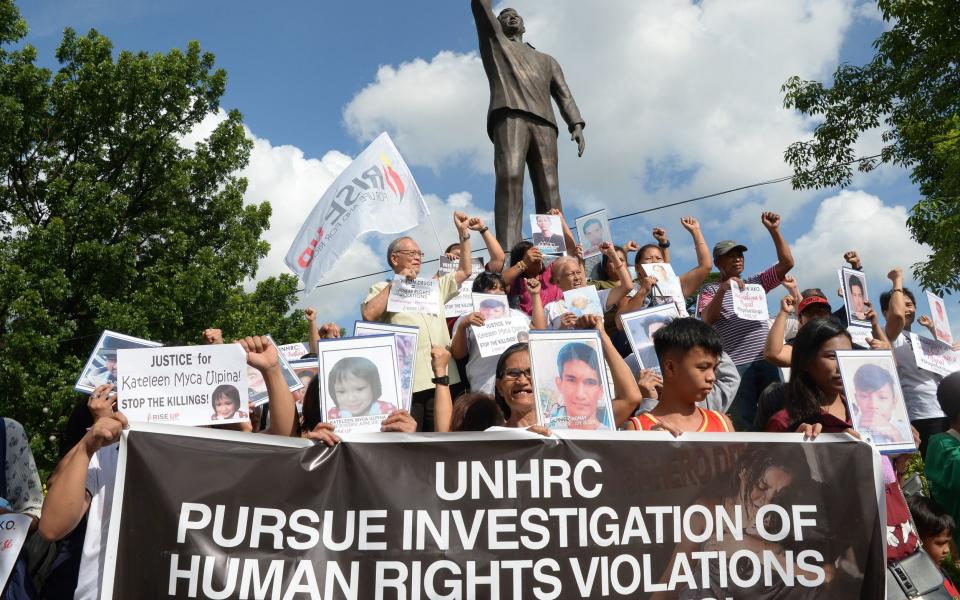Philippines' 'heavy-handed' war on drugs leads to human rights violations: report

The Philippine government’s “heavy-handed” war on drugs has resulted in serious human rights violations, including killings and arbitrary detentions, a new report by the UN Human Rights Office said on Thursday, calling for an independent and credible international investigation.
The report said that long-standing human rights concerns had become more acute in recent years, manifesting particularly starkly in the widespread and systematic killing of thousands of alleged drug suspects, and that formidable barriers to accessing justice need to be urgently addressed.
“People who use or sell drugs do not lose their human rights,” said Michelle Bachelet, the UN human rights chief.
“Unfortunately, the report has documented deep-seated impunity for serious human rights violations, and victims have been deprived of justice for the killings of their loved ones. Their testimonies are heartbreaking.”
Last year the 47-member UN Human Rights Council voted to examine alleged crimes linked to President Rodrigo Duterte’s war on drugs, a brutal campaign that has been condemned by rights groups around the world.
The probe was mandated to focus on extrajudicial killings, arbitrary arrests and enforced disappearances. Official figures now indicate that at least 8,663 people have been killed during the counter-narcotics campaign, with some estimates putting the real toll at more than 27,000.
While the UNHCR vote stopped short of setting up a fully fledged commission of inquiry, it opens the way for tougher follow-up action after the completion of the report. The Philippines was strongly opposed to the move, denouncing it as a “travesty”.
The report’s findings are damning, pointing to the vilification of dissent, harmful rhetoric from high-level officials and the deliberate targeting of human rights workers, several of whom have been killed over the past five years.
Investigators highlighted that there has so far been only one conviction for the killing of a drug suspect in a police operation since mid-2016.
Witnesses, family members, journalists and lawyers interviewed by the UN Human Rights Office expressed fears over their safety and a sense of powerlessness in the search for justice, resulting in a situation where “the practical obstacles to accessing justice within the country are almost insurmountable”.
Investigators said key policy documents relating to the drugs campaign showed a troubling lack of due process protections, and the use of language calling for “negation” and “neutralisation” of drug suspects.
“Such ill-defined and ominous language, coupled with repeated verbal encouragement by the highest level of State officials to use lethal force, may have emboldened police to treat the circular as permission to kill,” the report stated.
An inspection of police reports of raids on private households indicated that evidence may have been falsified.
An examination of 25 operations in which 45 people were killed in Metro Manila between August 2016 and June 2017 found that “police repeatedly recovered guns bearing the same serial numbers from different victims in different locations”, suggesting some victims were unarmed at the time of their killing.
Arrests of suspected drug offenders have also contributed to a 534 per cent prison congestion rate – among the highest in the world.
Beyond the drugs war, the report documented that between 2015 and 2019, at least 248 human rights defenders, legal professionals, journalists and trade unionists have been killed in relation to their work.
It pointed to the practice of “red-tagging” - labelling individuals or groups as communists or terrorists – which has posed a serious threat to civil society and freedom of expression.
“Human rights advocacy is routinely equated with insurgency and the focus diverted to discrediting the messengers rather than examining the substance of the message,” the report said.
“This has muddied the space for debate, disagreement and for challenging State institutions and policies.”

